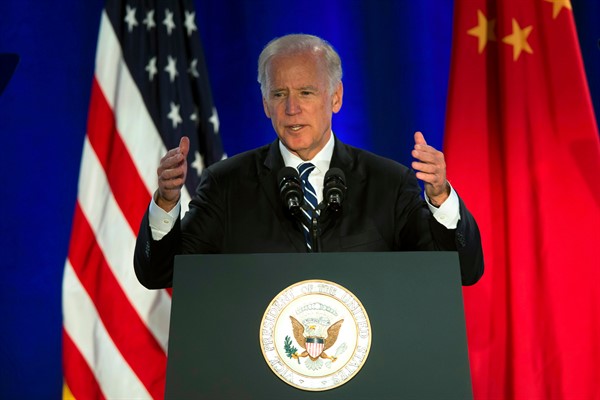One of former President Donald Trump’s principal legacies was to elevate the attention that U.S. foreign policy accords to China. His administration argued that America’s erstwhile “engage but hedge” approach had failed and that it was time to take a tougher line. The results of his policies, though, suggest that adopting an overly China-centric U.S. foreign policy is mistaken.
Pursuant to its more confrontational approach, the Trump administration imposed steep tariffs on Chinese exports and, having concluded that Beijing’s technological progress posed a particularly pressing threat to U.S. national security, took a number of steps to thwart the expansion of Chinese telecommunications giants, particularly Huawei. While those measures did set back the company’s global ambitions and limit China’s ability to import the semiconductor chips that are increasingly essential to contemporary innovation, Trump’s broader effort to slow Beijing’s resurgence did not succeed. Indeed, China is now more deeply embedded in the global economy than it was before the onset of the coronavirus pandemic.
According to the World Bank’s forecasts, China’s economy, which was already equivalent to 71 percent of America’s in 2020, will grow by 7.9 percent this year, following 2 percent growth last year; the U.S. economy, by contrast, is expected to grow by 3.5 percent in 2021, having contracted by 3.6 percent last year. Beijing’s exports reached a record $2.6 trillion last year, and its trade surplus was its largest since 2015. Finally, The Wall Street Journal reports that foreign direct investment into China grew by 4 percent in 2020, “contrary to earlier expectations that foreign businesses would seek to reduce their heavy reliance on the country as a key part of their supply chains.”

